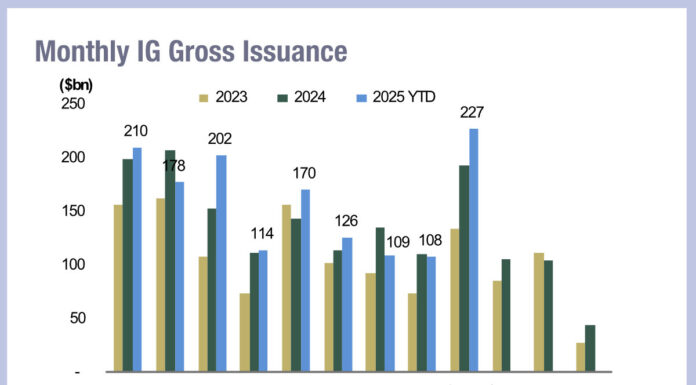The Federal Reserve Bank of New York has begun to buy fixed income exchange-traded funds (ETFs) via its Secondary Market Corporate Credit Facility (SMCCF).
The facility is controversial on several points. Firstly, is the lack of clarity on the investment process. Led by Senate minority leader Sherrod Brown, several senators wrote to the Fed chairman, Jay Powell, on 20 April 2020 asking for greater transparency around its operations.
Secondly, its trading is managed by BlackRock which also provides indexes which select the bonds to be included within benchmarks, and ETFs themselves which track bond indexes and may be eligible to be bought by the Fed. This has raised questions around the management of conflicts of interest.
Thirdly, the facility is invested in by the US Treasury but managed by the Federal Reserve, raising questions around the independence of the US central bank.
The SMCCF may purchase US-listed ETFs whose investment objective is “to provide broad exposure to the market for US corporate bonds.” Most ETF holdings will in ETFs exposed to investment grade US corporate bonds, the rest being in ETFs whose primary investment objective is exposure to US high yield corporate bonds.
While trading is managed by BlackRock Financial Markets Advisory, acting at the sole direction of the New York Fed on behalf of the facilities, that trading role will be opened to a competitive bidding process “once the exigent need to commence operations of the facilities has passed.” The facility’s programme is currently planned to close in September 2020, giving a maximum four-month window for another asset manager to pitch for the role and step in, once the initial commencement period is over.
The SMCCF will purchase eligible corporate debt at market prices from eligible sellers in the secondary market. Although best execution terms have not been set, some parameters for pricing of ETFs have been disclosed.
The SMCCF will generally not purchase shares of an ETF that are trading at a premium above the lower of the following limits relative to the prior end-of-day official net asset value (NAV):
(a) 1%, or
(b) the 1-standard deviation level of the ETF’s premiums to end-of-day NAV observed over the prior 52 weeks, on a rolling basis.
The Fed notes that the limits will are to stop it overpaying for an ETF relative to the cost of purchasing its underlying assets, and to reduce market impact.
The facility will look at composition of investment-grade and non-investment-grade rated debt, the management style, the amount of debt held in depository institutions, the average tenor of underlying debt, the total assets under management, the average daily trading volume, and leverage, if any, when deciding whether to buy ETFs.
Dealer selection will be based on those primary dealers that meet the ‘Eligible Seller’ criteria and that have completed and processed the ‘Seller Certification’ forms. Additional counterparties will be included later based on due diligence and compliance checks.
©Markets Media Europe 2025













